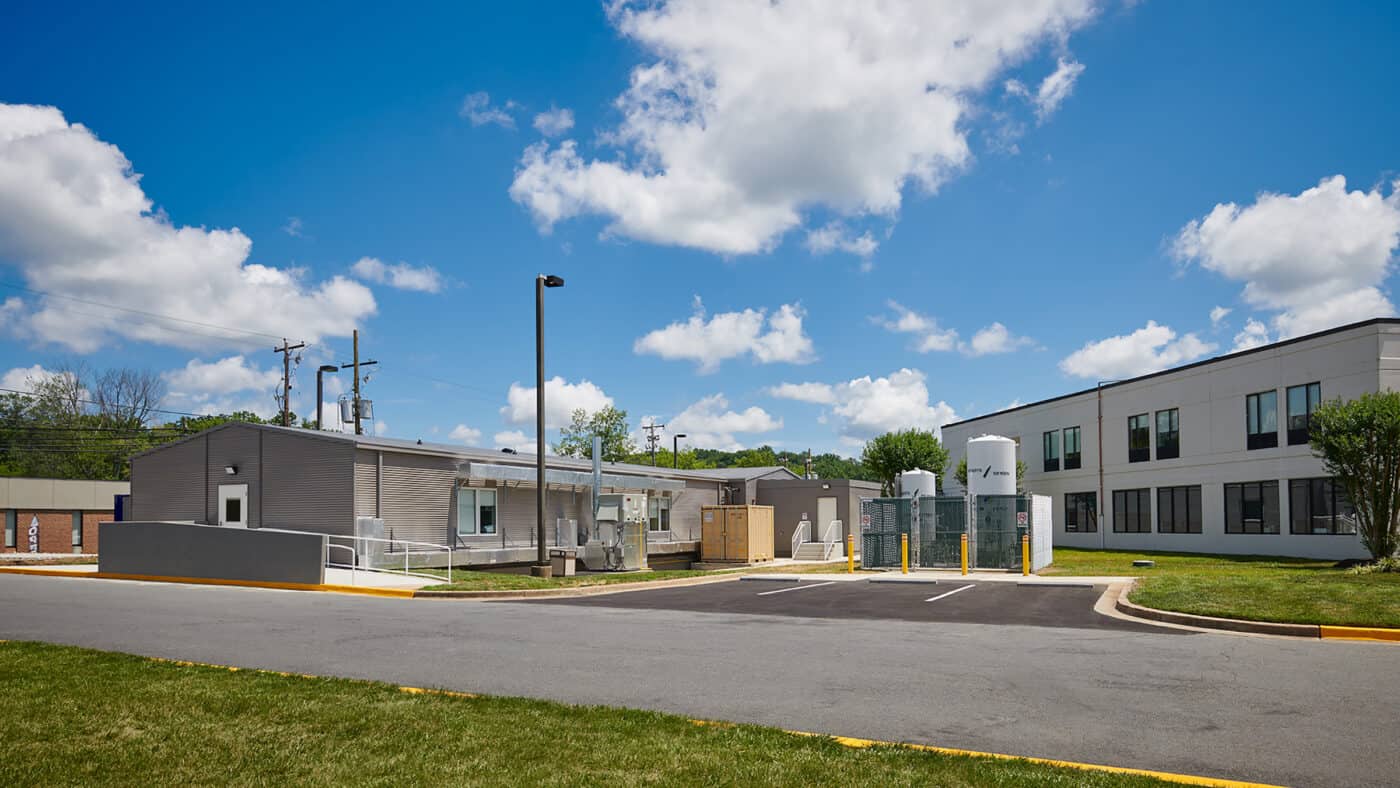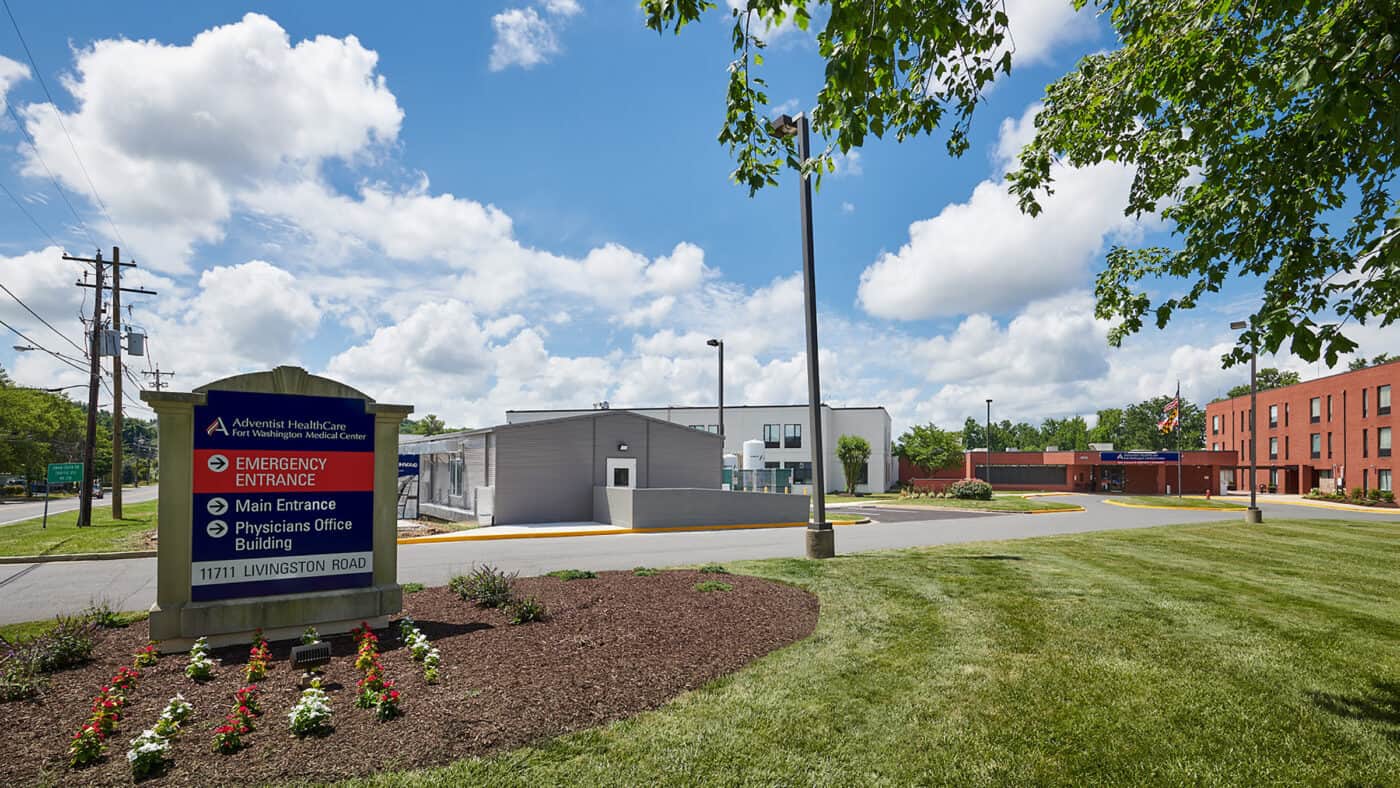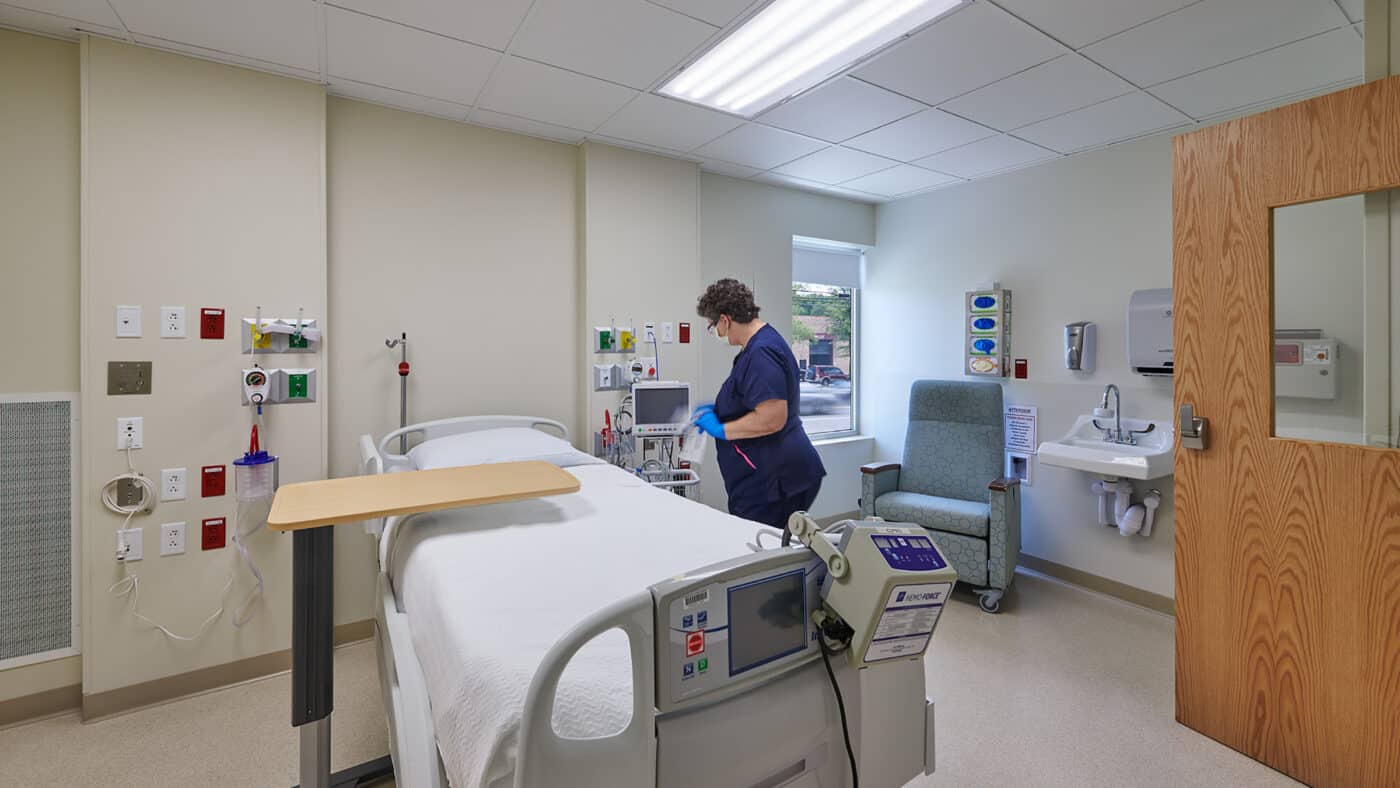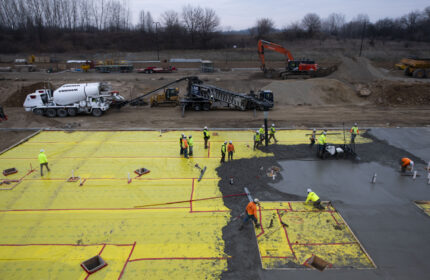Adventist Healthcare – Fort Washington Medical Center – STAAT MOD
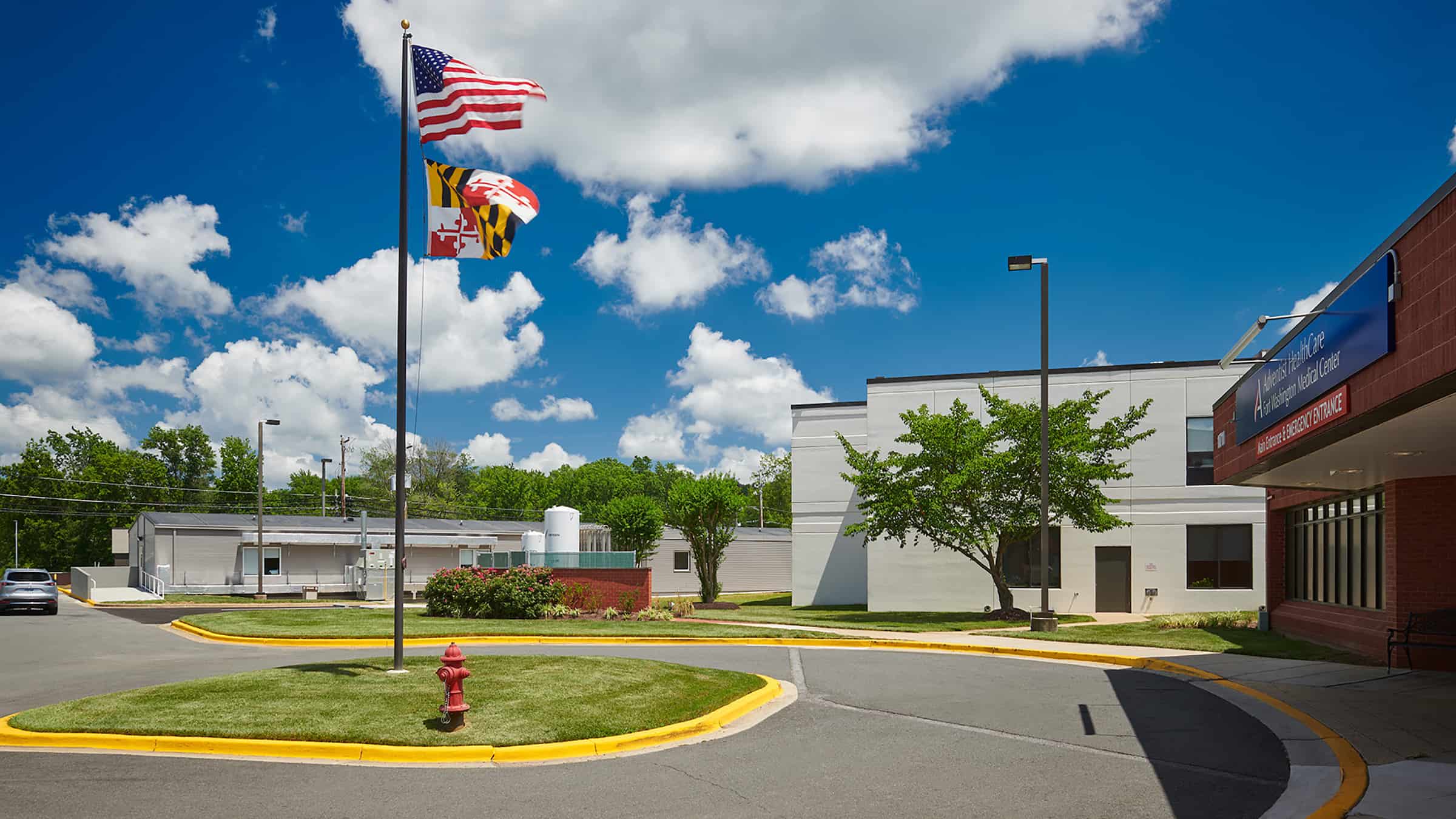
In partnership with the Maryland Department of General Services, Adventist HealthCare Fort Washington Medical Center sought ways to quickly provide additional ICU-bed capacity. This durable solution provides quality care to the surrounding community throughout the uncertain curve of infection.
Unlike other fabricated structures designed for lower acuity patients, the innovative STAAT Mod is highly engineered to hospital-quality environments. It is a critical care inpatient unit with Airborne Infection Isolation Rooms (AIIR) that provide increased safety for both patients and caregivers.
The installation required a large crane to lift the 25,000-lb. modules in place in very precise movements that must be rehearsed to ensure accuracy. Once in place, utilities, connecting mods, medical gas supply hook ups, electrical, building ramps, and roofing can be completed. The space allows the medical center the ability to separate patient populations to safely return to elective procedures without sacrificing clinical quality, safety, efficiency, or the dignity of any patient.
The end result is a 7,000 SF inpatient critical care unit care comprising prefabricated, modular Airborne Infection Isolation Rooms (AIIR) with support space that was assembled on site in 3 weeks. Twelve modules were installed adjacent to the hospital with 16 ICU rooms with isolation + support space.
Adventist Healthcare
Fort Washington, Maryland
HGA
- General Contractor
- Construction Manager
New Construction
7,000 SF
Project Highlights
- The Boldt Company partnered with HGA architects to build modular intensive care units for COVID-19 patients. It took less than a month from concept to finished product. Boldt also partnered with Faith Technologies and Tweet Garrot for specialty contracting scopes.
- The first hospital production was for Adventist Healthcare which took approximately two weeks to build, fit out and make ready to ship.
- Design developed and tested through Virtual Reality (VR) simulation exercises by experts, including critical care nurses trained in COVID-19 protocols, a hospital environment specialist in infection control, and Lean process engineers for rapid construction and delivery.
